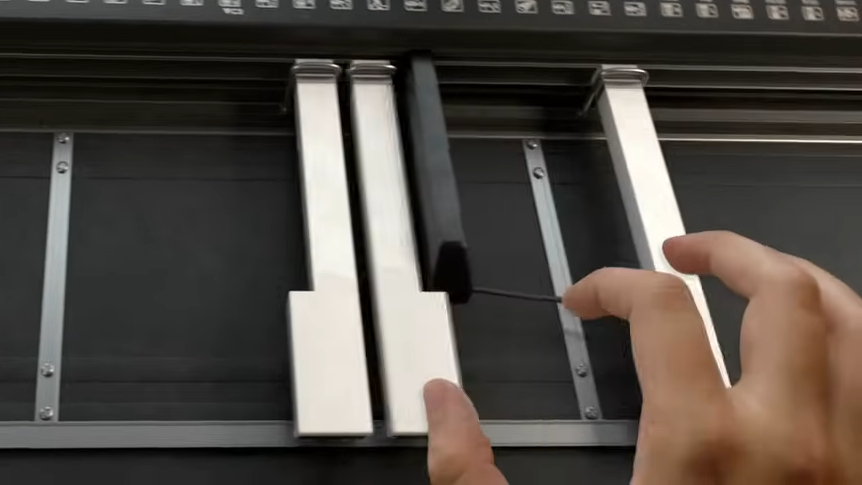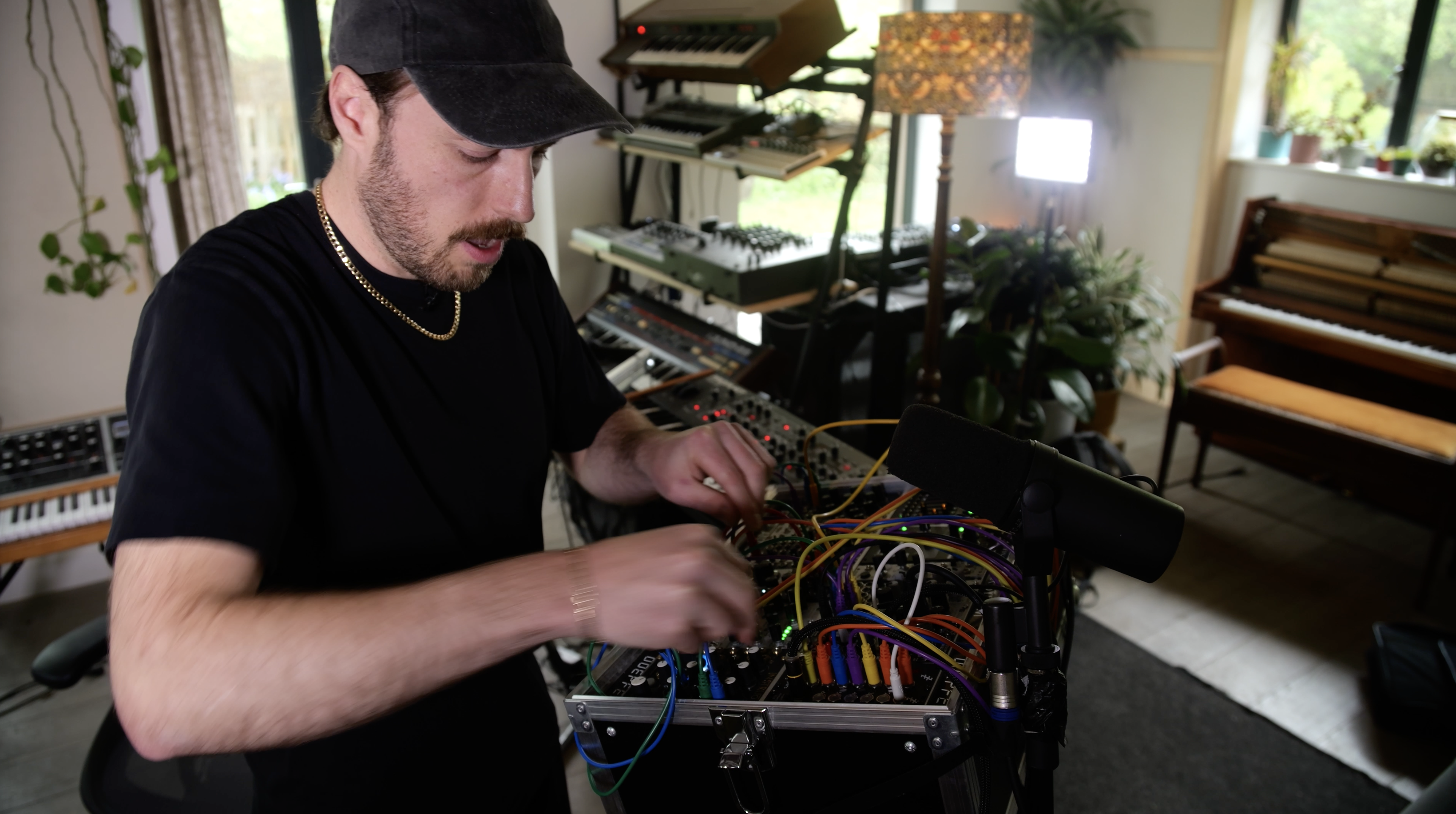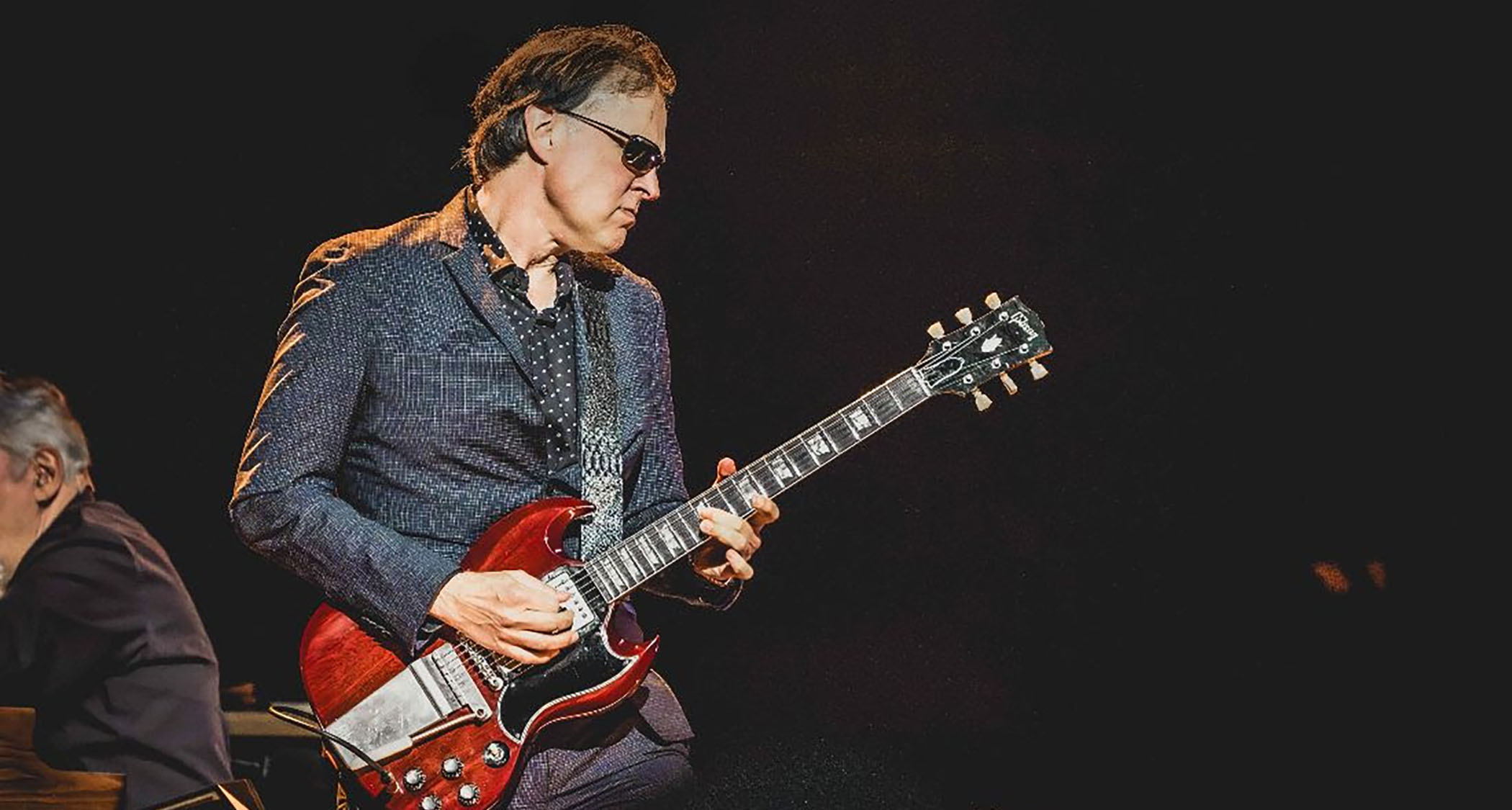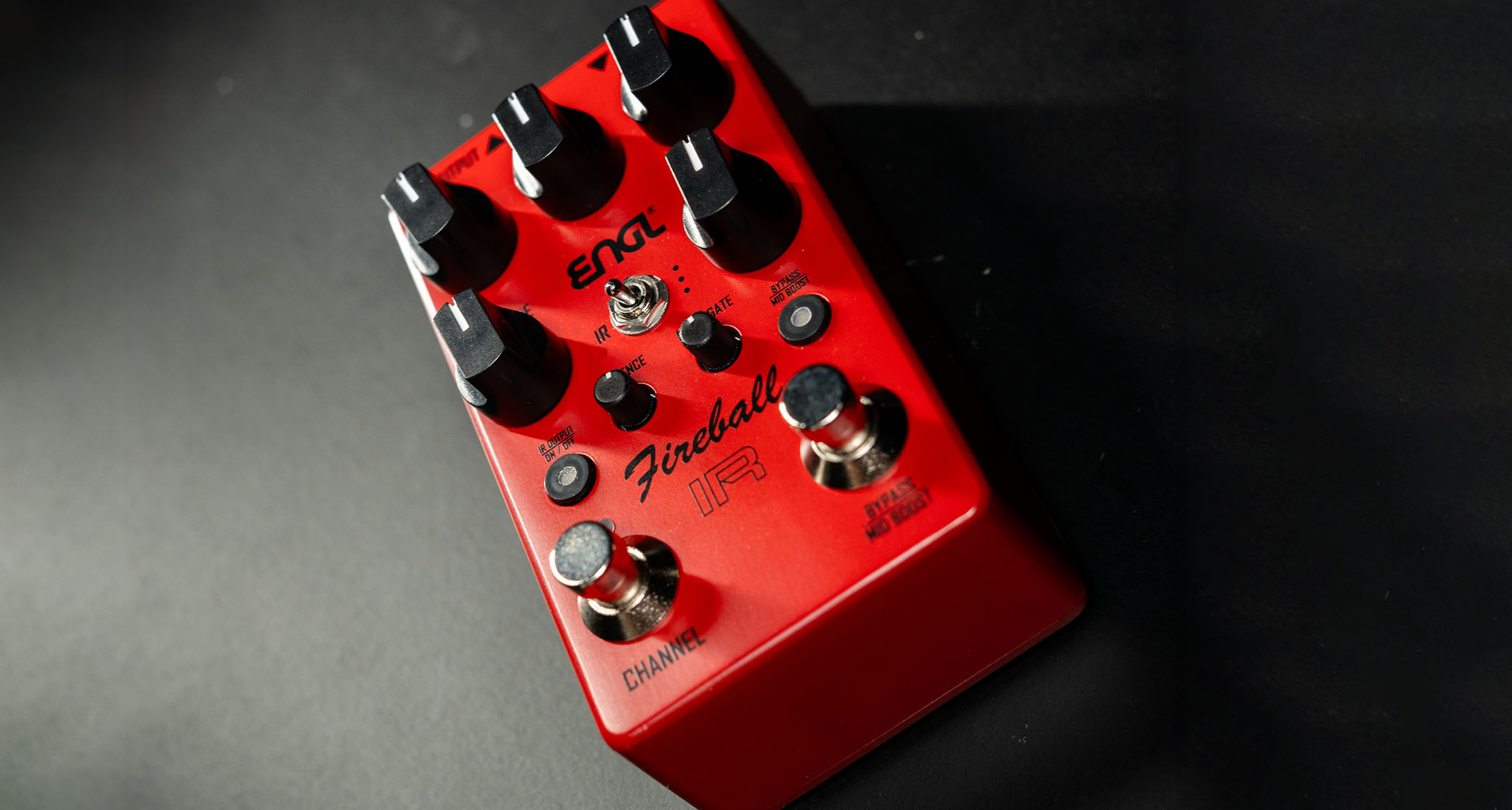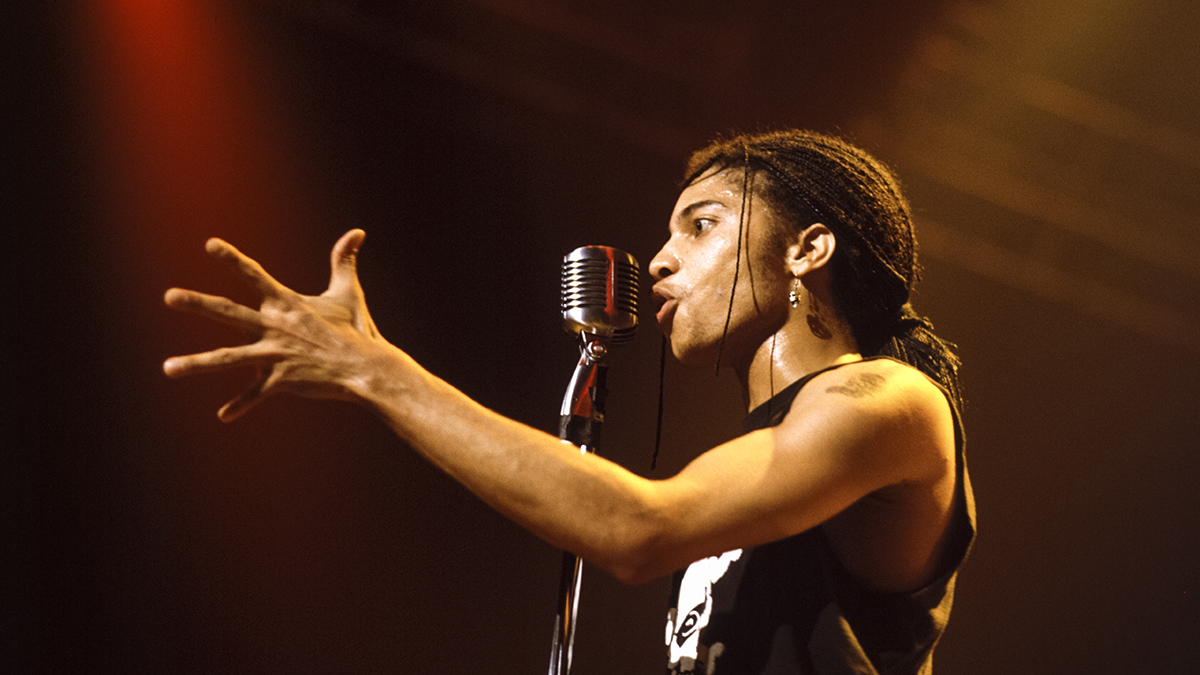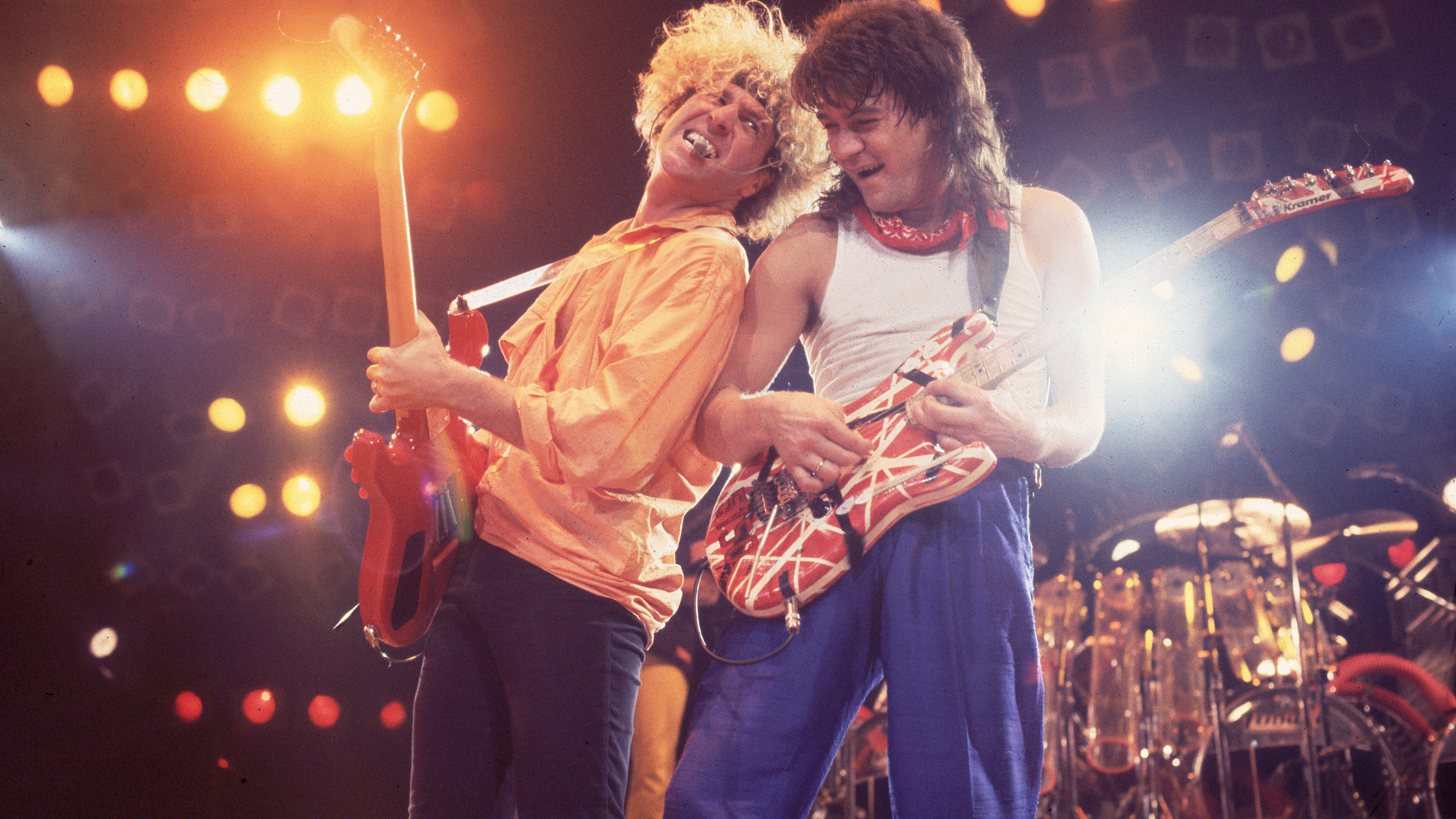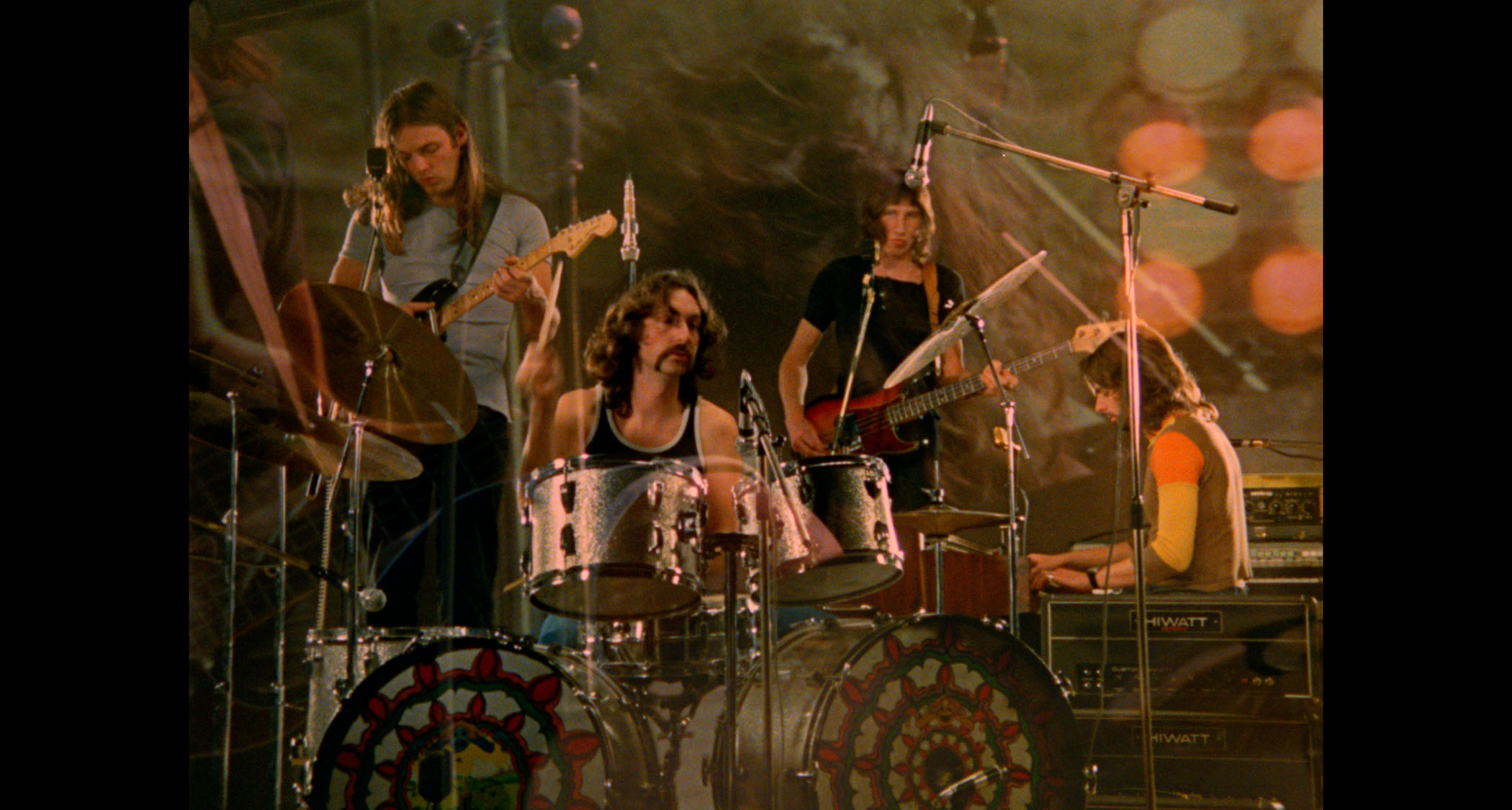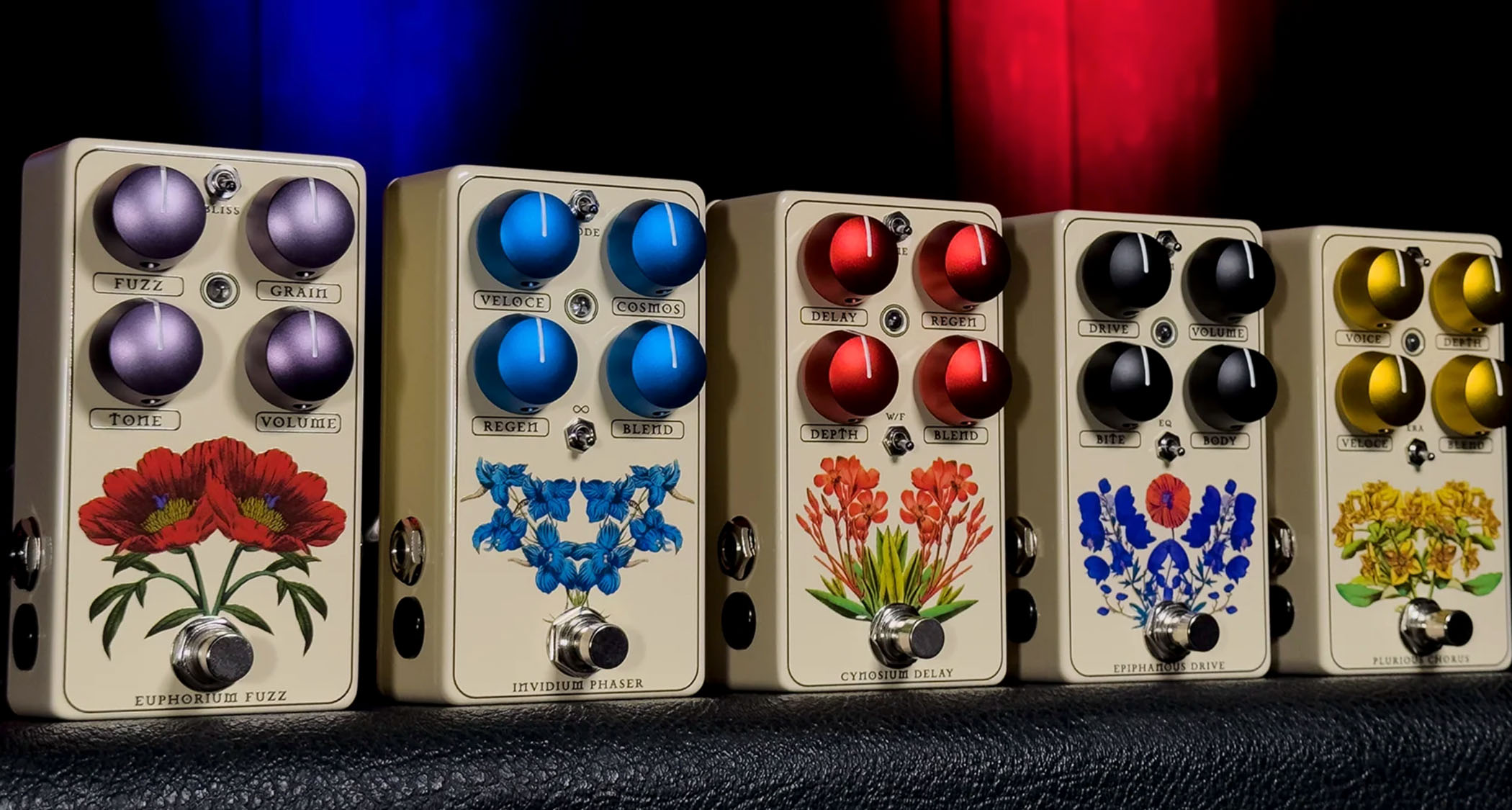Frankie Tontoh talks A-list gigs, theatre nightmares and channelling Gadd
The astonishingly versatile drummer fills us in on session success
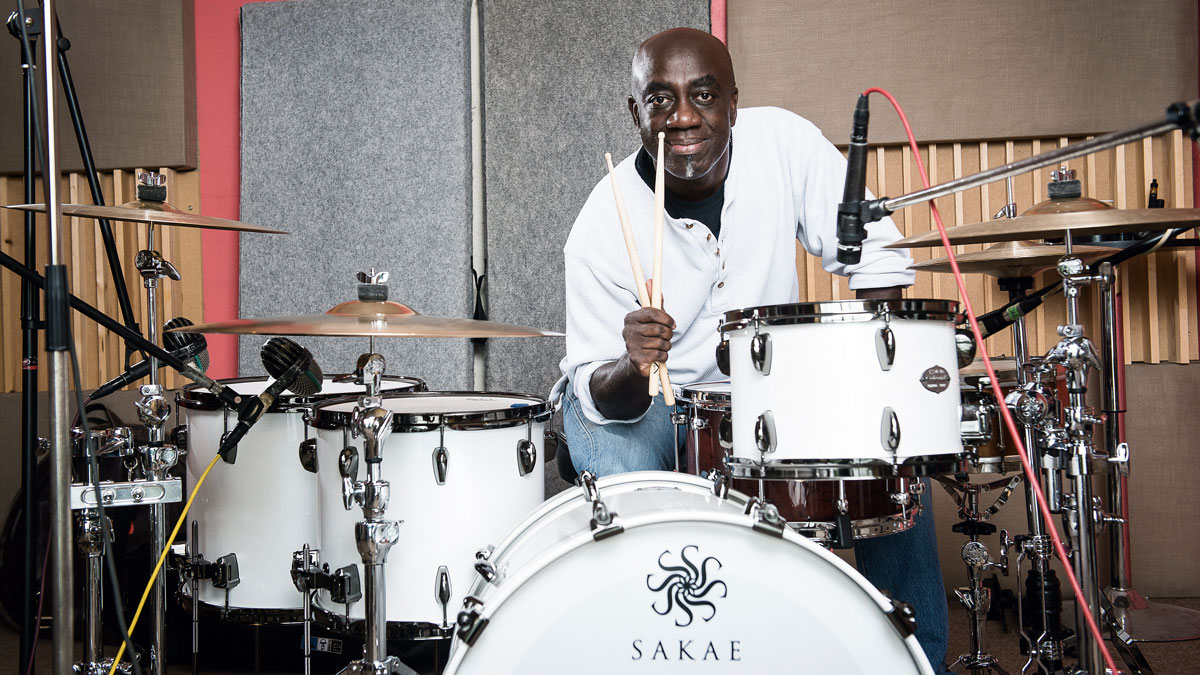
When I started playing I thought I didn't need lessons, I thought I could it myself...
To say Frankie Tontoh has had his fingers in a fair few musical pies is doing the experienced sticksman a huge disservice. Tontoh has a simply jaw-dropping CV.
Where to start? Well, how about with the reams of A-listers that he has backed up down the years. We’re talking Amy Winehouse, George Michael, Jack Bruce, Level 42 and many, many more.
He’s not just a session stalwart either, he is also an in-demand Musical Director with ten years as right hand man for Brit r’n’b hitmaker Craig David among his credits. On this gig he also successfully turned his hand to songwriting and arranging, skills that he has continued to work on and refine in the years since.
As Frankie himself tells us, he’s done just about everything bar playing cruise ships. So what does it take to be such an in-demand and versatile drummer? As he enjoyed some rare downtime in between touring commitments with his latest band, the funky as hell Brother Strut, we chatted with Frankie about his startling career and how you could follow in his path as a master of all trades.
You’ve had an incredibly diverse career, is that reflected in your musical upbringing?
“When I started playing my dad was a jazz fan so we had a lot of that in the house. I was influenced by a lot of fusion and all kinds of things. When I became a drummer I wanted to play everything. My hero was the guy that could play everything – Steve Gadd. I wanted that wide range of technical ability. I was influenced a lot by Gadd’s attitude and approach to playing. Playing different styles has always been in my aim. When I teach now I tell my students to broaden their horizons. If you limit yourself you will back yourself into a corner.”
My hero was the guy that could play everything – Steve Gadd. I wanted that wide range of technical ability.
Do you get a lot out of teaching?
“The students really inspire me. I’m now taking from them as well as them taking from me. One student asked me to tell him about the old timers and he would tell me about the Mike Mitchells and the younger guys. He sends me videos of all the younger cats and then I’ll say, ‘Check out John Robinson and Steve Jordan.’ I use the ideas I get from my teaching and apply them to my own playing, it’s a big part of my development. Teaching is really important to me.”
The ethos of learning and pushing yourself seems to be a centrepiece of your career
“When I started playing I thought I didn’t need lessons, I thought I could it myself. I felt like that until one day a friend asked if I knew what a paradiddle was and I didn’t. I just played by ear until that point. When I got into rudiments I realised there was a whole other world out there. Learning those helped me work out what was going on in the records I liked so much quicker. That advanced my playing and my vocabulary. I spent a few months learning out in Cuba. I love world music. Coming from Africa that is in my blood. I’ve done a lot of Cuban, Brazilian, funk, jazz, even reggae in the last few years. I try to cover it all because I like it all. It has helped in my development as a person, being able to appreciate every style and culture out there.”
Being a drummer and an MD was really tough when I started in terms of getting respect. It was a case of, ‘What do you know about harmony? You just hit things.’
How important is it to have that attitude of striving to learn new styles and improve?
"When I teach at ACM we touch on world music styles, we do a couple of weeks and then hopefully the students will carry it on off their own back. A lot of people aren’t exposed to this kind of thing, a lot of young drummers are one-dimensional, they’re either gospel or rock. A lot of players are bypassing a lot of information and history of drums. Steve Gadd, Jeff Porcaro, Billy Cobham, Stewart Copeland, these guys all did their research and listened to the music of the past. A lot of kids today are just listening to what is happening now. They don’t realise that Chris Coleman has listened to a whole variety of music to get the technical proficiency that he has. You can hear the history in his playing. Some people today are just into the fastest player or the most powerful.”
You mentioned MD-ing, is that a whole other ball game to being a session drummer?
“You need the respect of the artist. You will be hired and you have to put a band together. Being a drummer and an MD was really tough when I started in terms of getting respect. It was a case of, ‘What do you know about harmony? You just hit things.’ I was one of the early people to change that because I could play piano and I knew harmonies and musical theory. A big thing that will help Musical Directors is listening to music. I don’t stop listening to music. The ideas become second nature when you do that. I am constantly listening to all different types of music. I was Craig David’s MD for ten years. It was difficult to focus on drumming in that time. I was more of a bandleader. I became a musician, not just a drummer. I want to be a musician and I am a musician. I’m not saying my drummer went backwards but in became more of an arranger and that was great for me.”
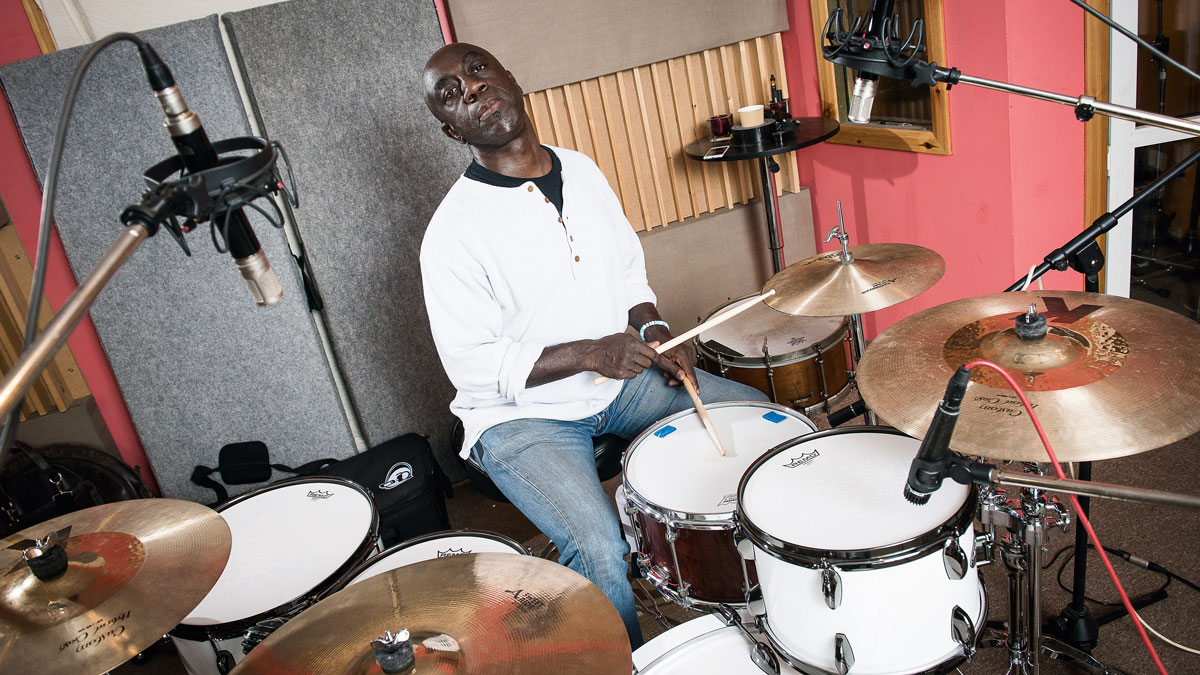
From the studio to the theatre
You are hugely experienced as a live and studio player, how do you today split your time between the two?
“It has changed down the years. I’m not so much in the studio like I used to be. There are only a few guys that are in the studio constantly but then you find they’re not on the road so much. I do a bit of both. Currently it’s more of a live thing for me. I think there’s less studio work about. I hope so anyway otherwise I’ll be thinking whether I’m not any good anymore! I think I come into my own on stage. The band I’m in now Brother Strut are a live thing. We get a lot of love from playing live.”
If there’s two great drummers they will probably take the nice guy. No, hang on, there’s no probably about it, theywilltake the nice guy.
What advice would for young drummers looking to have a career as varied as yours?
“You need versatility. Also, you need to be punctual and be a nice person. That is so important. A lot of guys can play, there’s a lot of great players out there. What sets you apart from the next person will be your personality and how cool you are to be around. If there’s two great drummers they will probably take the nice guy. No, hang on, there’s no probably about it, they will take the nice guy.”
What technical skills do you need?
“You need the skill set as well. You need to play to a click because you will be playing to a click live and in the studio. You need to offer as many different options as well. You need to know sounds as well and have the right gear. I joined the Italian artist Zucchero’s band and he came in and he was quite intimidating. He walked around the drums and said, ‘I don’t like the groove, give me New Orleans.’ So I played New Orleans and then he said, ‘No, I want rock.’ I played rock and then he went, ‘No, make it funkier…no more African.’ I didn’t realise until about ten years later that was a test. We ended up going back to the original groove.
"There are artists out there like that who will try things like that and test your resolve. The MD later told me giving him that many options confused him. It’s like the old joke, ‘How many producers does it take to change a light bulb? I dunno, what’d you think?’ The more options you can give, the better. If you go to an audition or you’re preparing for a session, it is important to be thorough. If you walk in knowing the tracks inside out you will go in confident and you will be ready for whatever is thrown at you. If they say, ‘Okay, let’s try this but in 7/4’, and if you’re prepared you’ll say, ‘Okay, let’s go!’”
I’ve done it all. The only thing I haven’t done is cruise ships and I won’t be doing that any time soon.
Just adding another string to your bow, there’s your theatre pit work
“Yes, I’ve done it all. The only thing I haven’t done is cruise ships and I won’t be doing that any time soon. I did three months depping on the Memphis show in the West End. It was the first time I had been involved in anything like that. I had thought it was a job, there was no expression, you couldn’t be creative. But I wanted to give it a go. It was a baptism of fire. It was really difficult. The MD was really difficult because he wanted it exactly as it was written, there was no room for any margin of error. I found that stifling. I did it for quite a bit and I never came away with any confidence or love for the music. I would probably never do it again. It was an alien concept to not play freely within the boundaries of the genre. I know Neal Wilkinson plays on Beautiful and he has a lot more freedom. I was petrified every night of making fresh mistakes.”
That says a lot about your attitude and outlook, that you were willing to attempt and embrace an alien concept
“If I look back on it now I have taken positives from it. I was brave to do it. I was depping so I never really got a good run at it. I read it all correctly but if I didn’t hit the bell of the cymbal at the exact right time of the fill I would get notes after the show. The first couple of days I did it, I had 28 pieces and I had notes for all of them. I would go practice it and I’d correct those mistakes but then because of the tension that I was being scrutinised I would make new mistakes, mistakes that weren’t really mistakes. I kept going and going. I did it for three months but it wasn’t for me. I couldn’t justify the unhappy feeling of getting to my car every night wondering how I had done and then realising I knew how I had done because the email had already come through with the notes. I learnt a valuable lesson about who I am from that.”
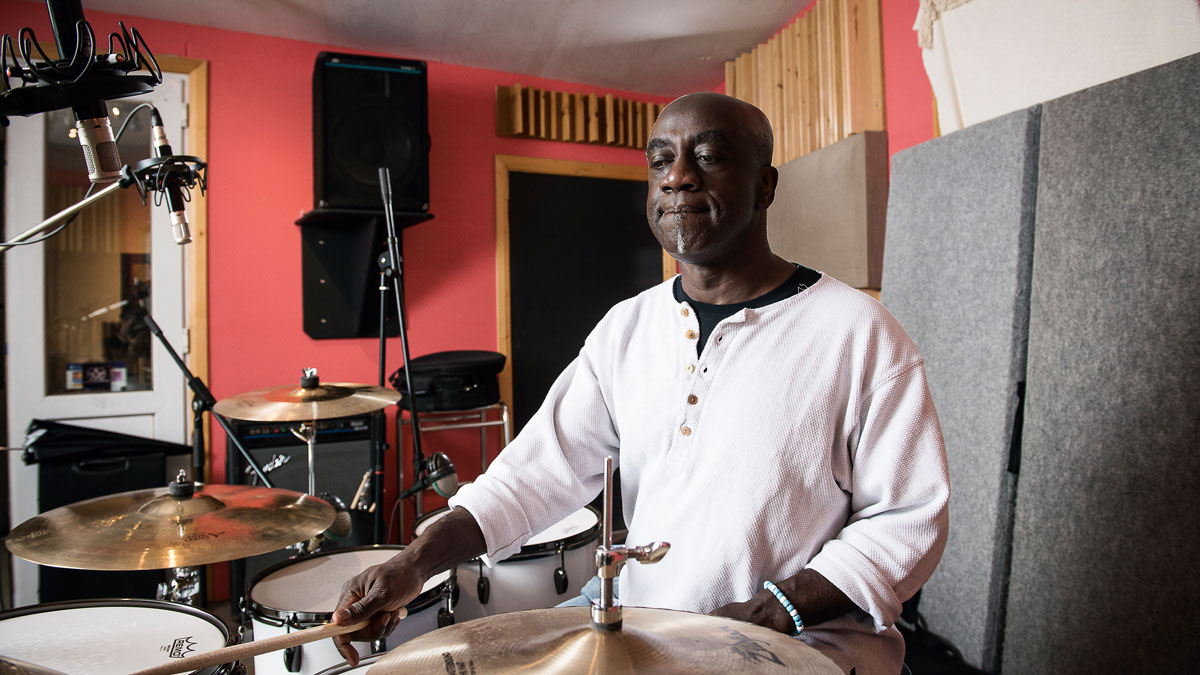
A-list sessions
You are perhaps best known for working with A-list artists, but again they are a real mixed bag stylistically. What is the key to getting and keep such an array of gigs?
“It is simply just embracing the music. For instance, working with Jack Bruce was a no brainer. I’m a big fan of Cream and a big fan of Jack because I know he was a jazzer at one point. It was great knowing that Simon Phillips had been his drummer before and Jon Hiseman as well. With Jack at first I was trying to be Ginger, I gave him the default setting. After the first gig I said to him that I was more of a groove player, I didn’t play the toms as much as Ginger, was that ok? He said, ‘Just keep doing what you’re doing, if I wanted Ginger I’d call the c***! [laughs]’ In five years with him he never once told me what to play, he trusted me.”
The Amy Winehouse gig was a challenge, trying to finish the concerts every night. It was the most beautiful, colourful music I have ever played.
Amy Winehouse tested your pop jazz chops
“The Amy Winehouse gig was a challenge, trying to finish the concerts every night. It was the most beautiful, colourful music I have ever played. She was a beautiful person. I had to put on my Steve Jordan hat for that one. Basic grooves with a ’60 Al Jackson style, really tasteful playing.”
You’ve also done straight-up pop with George Michael
“George Michael was a bit like the theatre gig where there was no margin for error. He’s not a musician in that way where he might say, ‘Let’s try this and let’s take it into 7/4.’ Something like a Justin Timberlake gig is a proper muso gig even though it is pop music. George wasn’t like that. He liked it really simple and absolutely like the record.“
And now you’re funking it up with Brother Strut
“Yeah, a great band where I get to create my own parts. I got to the age where I can finally do that! It’s all one or two take stuff. We always go for the fresh sound and we try to capture the feel. Brother Strut is my main thing right now and is gathering pace. People want to hear funk and soul, we didn’t realise that. It’s a popular genre but people don’t even know the name of it. When you mention funk people say, ‘Is that Bruno Mars?’ We say, ‘Well…I don’t think he’s funk but he’s funky.’ I love playing simple funky grooves and tasteful fills and then when it comes to the solo we take it to Cuba!”
Rich is a teacher, one time Rhythm staff writer and experienced freelance journalist who has interviewed countless revered musicians, engineers, producers and stars for the our world-leading music making portfolio, including such titles as Rhythm, Total Guitar, Guitarist, Guitar World, and MusicRadar. His victims include such luminaries as Ice T, Mark Guilani and Jamie Oliver (the drumming one).
Zak Starkey is back in The Who. “I take responsibility for some of the confusion… Zak made a few mistakes and he has apologised”, says Pete Townshend
“I oversaw every element - not just the music and the lyrics and the melodies and the production, but also the merch and the fan clubs and everything”: Mike Portnoy talks about his years away from Dream Theater
Zak Starkey is back in The Who. “I take responsibility for some of the confusion… Zak made a few mistakes and he has apologised”, says Pete Townshend
“I oversaw every element - not just the music and the lyrics and the melodies and the production, but also the merch and the fan clubs and everything”: Mike Portnoy talks about his years away from Dream Theater

